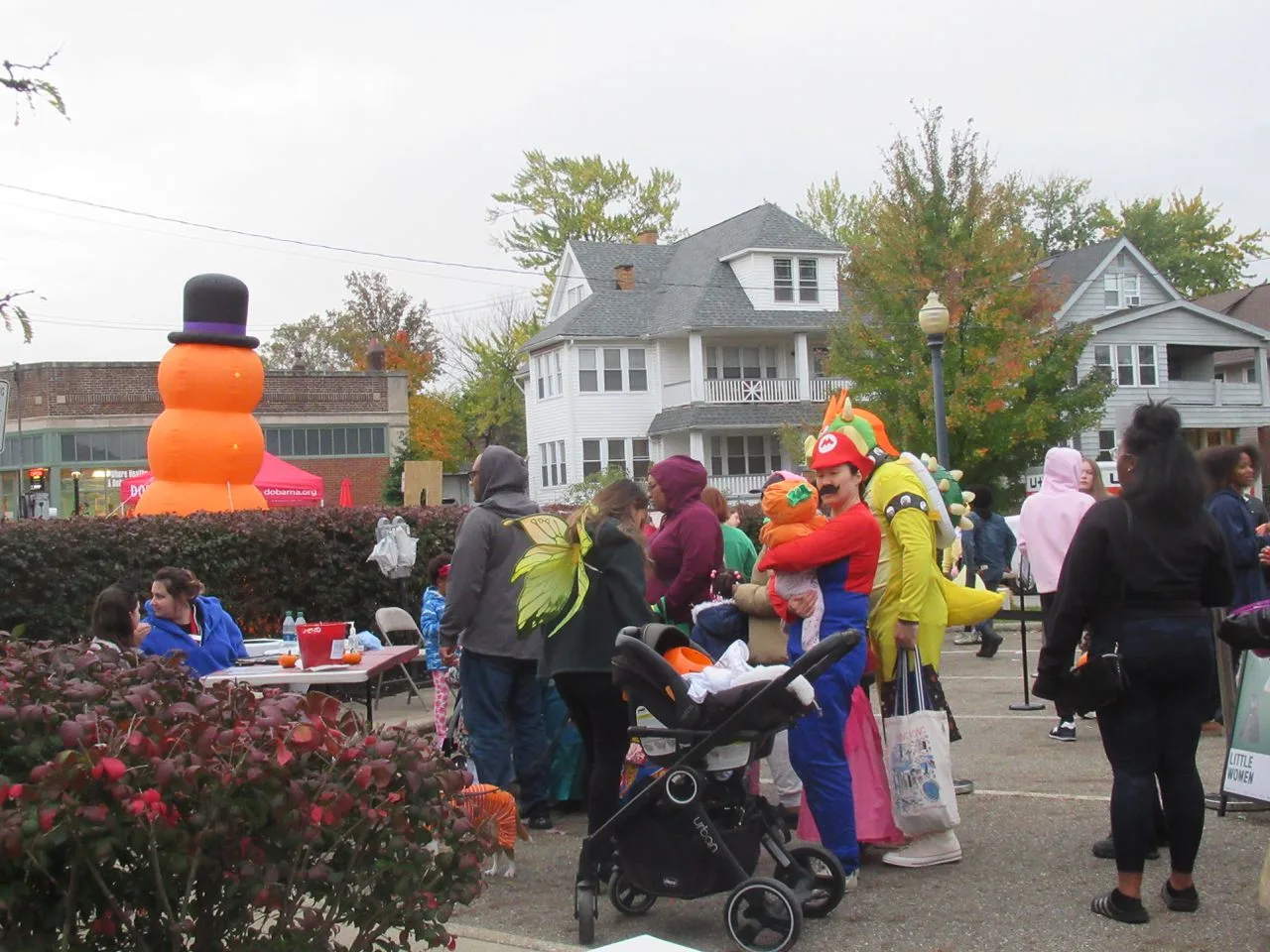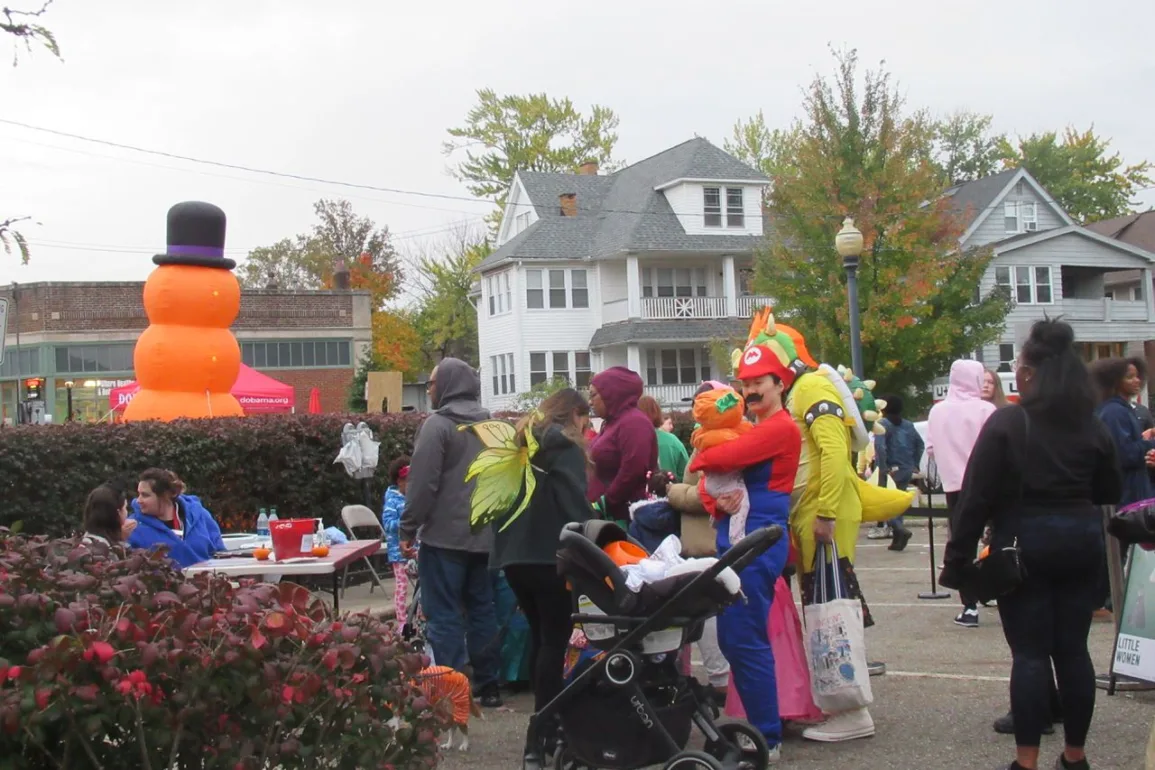
CLEVELAND HEIGHTS, Ohio — After convening for two years, the city’s Racial Justice Task Force has issued its overview of findings and recommendations to City Council.
The task force is calling for additional provisions and safeguards in local government to end systemic racism.
That was the goal back in the summer of 2020, in the wake of George Floyd’s murder at the hands of Minneapolis police, when council created “actionable legislation” and plans for a small citizen task force.
The Racial Justice Task Force (RJTF) then expanded that November to 25 members, focusing not only on policing and public safety, but also two other subcommittees: housing and economic mobility as well as health and education.
Although there was a “sunset provision” in the enabling legislation calling for disbandment of the group after two years, RJTF Chair Rhonda Davis-Lovejoy said she hoped the task force would remain intact to assist in carrying out recommendations that include:
— Expanding the role of the city’s Fair Practices Board to function as a “civil rights complaint bureau, in order to keep racial equity as a high priority”
— Hiring a Diversity, Equity and Inclusion (DEI) staff person to analyze city practices more fully and see that corresponding policies are implemented
— Adopting a system that provides racial impact statements for specified economic development and budgeting decisions
— Partnering with the Heights Libraries and the Cleveland Heights-University Heights City Schools to provide learning materials to study on racial issues and remedies.
In the area of “Economic Opportunity Recommendations,” city officials noted that some of the initiatives may be covered at least in part or theory through remaining allocations of the American Rescue Plan Act (ARPA) pandemic relief funding.
There may be a difference in approach to the RJTF’s recommendation to “hire an organization to work with businesses on Noble and South Taylor roads to establish ‘special improvement districts (SIDS)’ as the city did historically with the Coventry district.”
City Council has already discussed using ARPA funds to allocate to a merchants’ association rather than a SID, where the funds could go to commercial property owners rather than small businesses.
The city had an earlier merchant-oriented program set up at one time using federal Community Development Block Grants (CDBG).
The RJTF would also like to see the city use the strength of its tax revenue to forge an agreement with its bank to make more loans in the African American community — as Cuyahoga County has done.
Similar cooperative efforts could be made with other municipalities pooling economic resources for the same effects with banks.
In working with African American businesses, other recommendations call for further outreach with owners to provide information about commercial loans as well as dialogue about “how they survived the pandemic — or didn’t,” Davis-Lovejoy said.
From there, the RJTF recommends that the city hire a Home Mortgage Disclosure Act (HMDA) expert to further analyze local banks’ lending practices in African American neighborhoods, as well as work with the National and Greater Cleveland Community Reinvestment coalitions.
Housing recommendations include guaranteeing the right to counsel for tenants being evicted, as well as ARPA funds for qualifying homeowners to assist with upkeep and code compliance.
The city could also work toward “resurrecting the Cleveland Tenants Organization and the Heights Community Congress,” which adjourned in February after 50 years of fair housing advocacy but provided the RJTF with training and background before disbanding.
A “bad landlord” ordinance is also recommended, providing municipal court with “harsher penalties for those who have especially egregious predatory records.”
But much of the focus of the housing recommendations comes back to banking compliance with federal Community Reinvestment Act (CRA) regulations to increase the number of loans made in African American neighborhoods.
Back at law enforcement issues, the RJTF also renewed its call for continued analysis of traffic stops showing racial disparities that were still high in the second year of review (2021 statistics). Data provided earlier was incomplete, with a new records collection and monitoring system still being developed.
“Cleveland Heights-specific” police training should also continue about traffic stops and use-of-force policy, along with training dispatchers to be able to provide more clarity on calls potentially involving a “mental health crisis.”
After the Oct. 16 Zoom presentation, a formal written report from the RJTF was expected to follow for City Council to review.
“Starting with the number of applicants we received (76 in all), I don’t think we could honor George Floyd any more than you have done,” Councilman Tony Cuda said of the groundwork laid by the group.
“It shows some good that comes out of catastrophe.”
Councilwoman Davida Russell, who drafted the original legislation with then council members Melody Joy Hart (now council president) and Mike Ungar, said: “I had no idea where this was going when we brought this group of people together. But they have made some great recommendations.”
Councilwoman Gail Larson thanked Davis-Lovejoy and the RJTF “for your leadership in working toward racial equity.”
Read more from the Sun Press.



